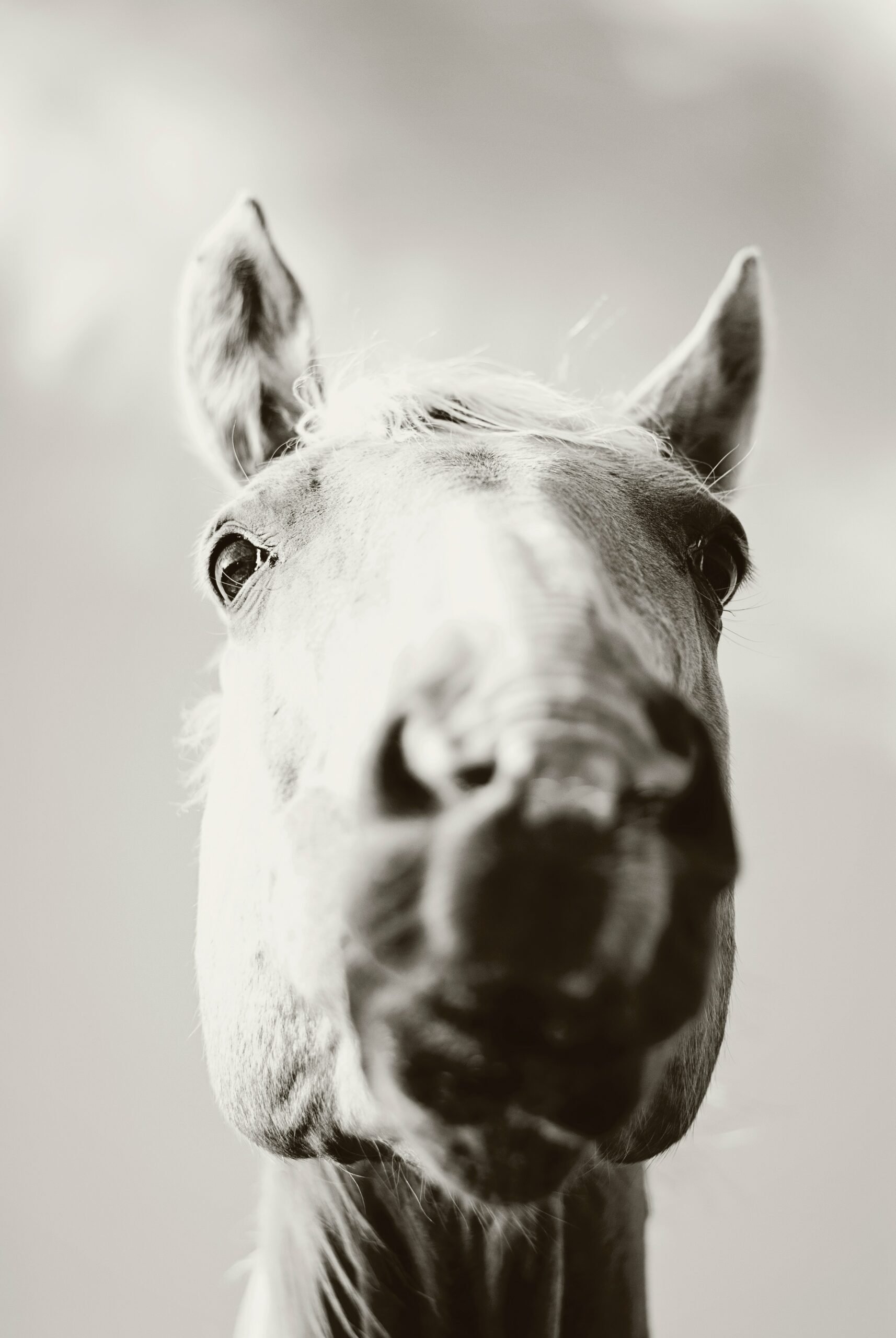Remember that time when I was trying to groom my horse and she kept rubbing her head all over me?
I was covered in horse slobber and it was hilarious.
But seriously, why do horses do this? It’s not like they’re trying to give us a hug or anything… right?
Table of Contents
Reasons Why Horses Rub Their Heads
There are actually a few different reasons why horses rub their heads, including:
Itching: Just like us, horses can get itchy from time to time and may rub their heads on objects or humans to scratch an itch.
If your horse is rubbing their head on you and it seems like they’re trying to scratch an itch, it might be a good idea to check for any signs of skin irritation or parasites.
Bonding: Some horses rub their heads on humans or other objects as a way to bond and show affection. This is especially common in horses that have been well-trained and have a strong bond with their handlers.
Dominance: In some cases, horses may rub their heads on humans or other objects as a way to assert dominance or test boundaries.
If this is the case, it’s important to set clear boundaries and use consistent training techniques to establish and maintain a respectful relationship with your horse.
Discomfort: In rare cases, rubbing the head can be a sign of discomfort or an underlying health issue. If your horse is rubbing their head excessively or if the behavior is accompanied by other signs of discomfort, it’s important to consult with a veterinarian.
How to Address the Behavior
If your horse is rubbing their head on you or other objects in a way that is causing problems or is uncomfortable, there are a few things you can try to address the behavior:
- Use clear body language and verbal cues: When interacting with your horse, use clear body language and verbal cues to communicate your boundaries and expectations. For example, if your horse is rubbing their head on you while you’re grooming them, gently push them away and say “no” in a firm but calm voice. By consistently using clear cues, your horse will learn to respect your boundaries and understand what is and is not acceptable behavior.
- Check for any signs of discomfort or health issues: If your horse is rubbing their head excessively or if the behavior is accompanied by other signs of discomfort, it’s important to consult with a veterinarian to rule out any underlying health issues.
- Provide attention and bonding activities: If your horse is rubbing their head on you as a way to bond or seek attention, try providing them with regular grooming and attention, as well as interactive toys or activities to help alleviate boredom and improve their overall well-being.
- Use positive reinforcement: If your horse is rubbing their head on you as a way to get a reward, try using positive reinforcement to encourage them to engage in more desirable behaviors. This could include giving them treats or praise when they interact with you in a positive way, or ignoring the behavior when they rub their head on you.
FAQ
Is it okay for my horse to rub their head on me?
In general, it’s okay for a horse to rub their head on you as long as it’s not causing any problems or discomfort.
However, it’s important to set clear boundaries and use consistent training techniques to establish and maintain a respectful relationship with your horse. If the behavior is causing problems or you have concerns, it’s a good idea to consult with a professional trainer or behavior specialist.
How can I tell if my horse is rubbing their head because they’re itchy or because they want to bond?
One way to tell the difference is by observing the context and intensity of the behavior. If your horse is rubbing their head on you or other objects in a gentle and sporadic way, it’s more likely that they’re just trying to scratch an itch.
On the other hand, if the behavior is more persistent and intense, it may be a sign that they’re trying to bond or seek attention.
Paying attention to your horse’s body language and other behaviors can also be helpful in determining the cause of the head rubbing. For example, if your horse is rubbing their head on you and also nuzzling or licking you, it’s more likely that they’re trying to bond.
What should I do if my horse is rubbing their head as a sign of dominance or to test boundaries?
If your horse is rubbing their head on you or other objects as a way to assert dominance or test boundaries, it’s important to set clear boundaries and use consistent training techniques to establish and maintain a respectful relationship.
This could include using clear body language and verbal cues, as well as using positive reinforcement to encourage more desirable behaviors. If the behavior is causing problems or you have concerns, it’s a good idea to consult with a professional trainer or behavior specialist.
Conclusion Horse Head Rubbing: The Good, The Bad, and The Itchy
In conclusion, there are a few different reasons why horses rub their heads, including itching, bonding, dominance, and discomfort.
If your horse is rubbing their head on you or other objects in a way that is causing problems or discomfort, there are a few things you can try to address the behavior, including using clear body language and verbal cues, checking for any signs of discomfort or health issues, providing attention and bonding activities, and using positive reinforcement.
Just remember to pay attention to your horse’s body language and behaviors, and consult with a professional if you have concerns. Happy horse head rubbing!
